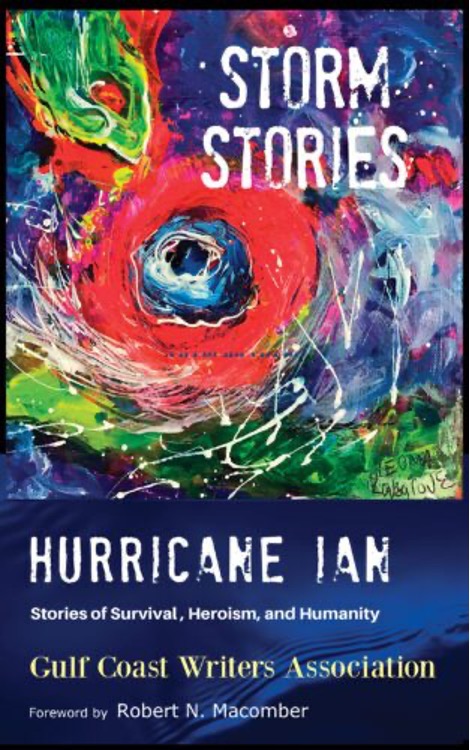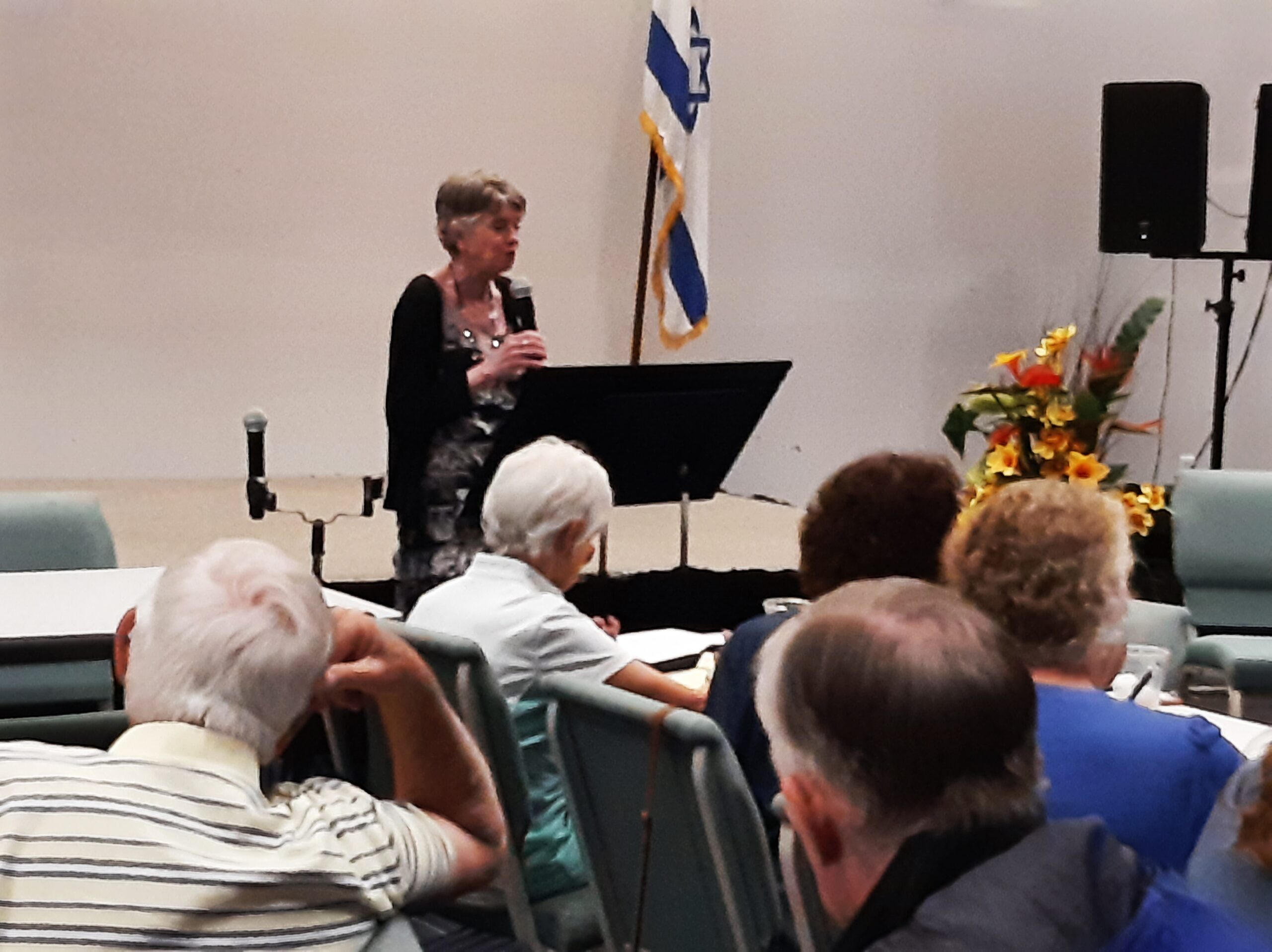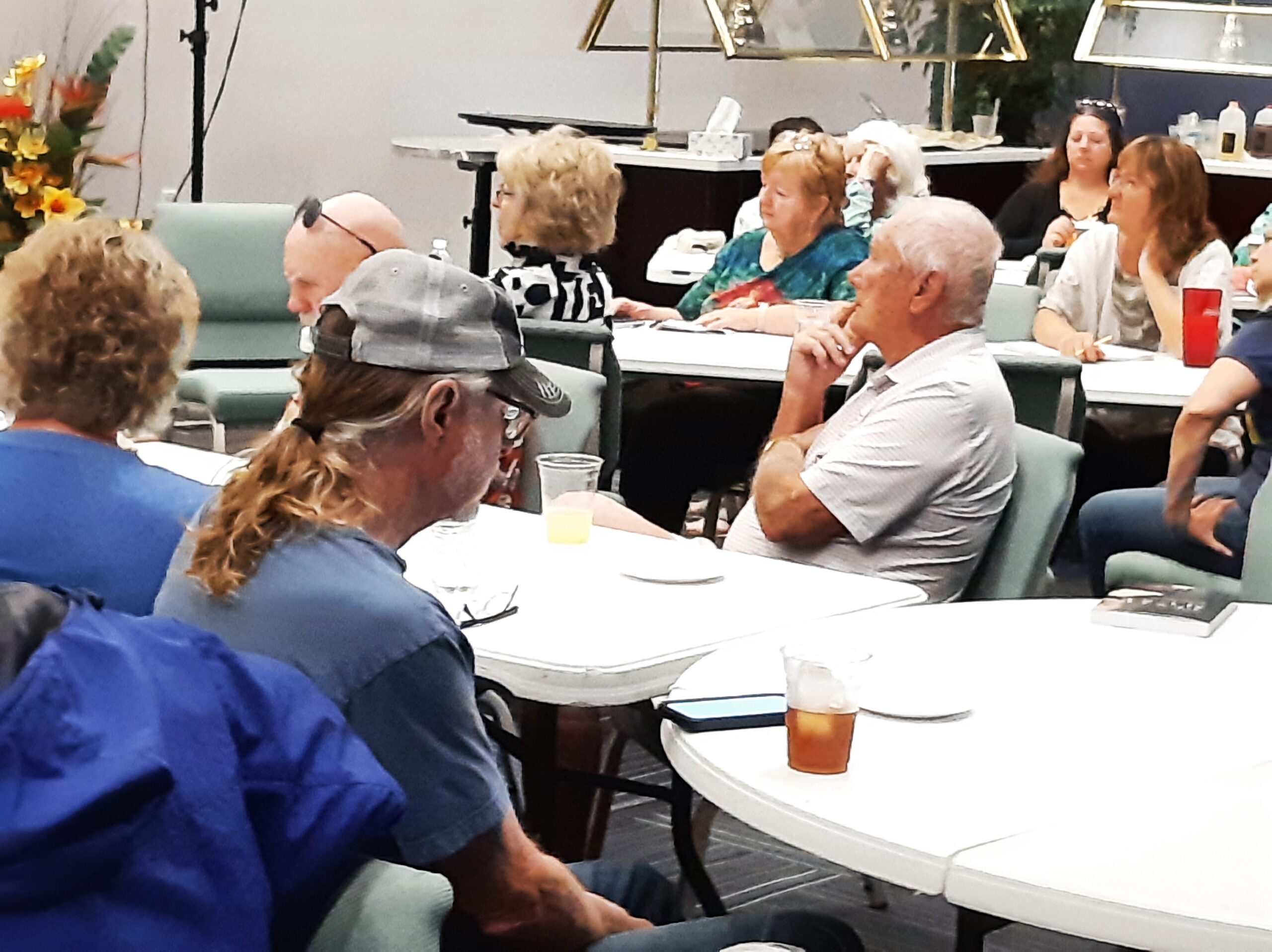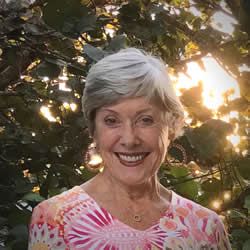The ‘Storm Stories – Hurricane Ian’ continues to get attention in the local press. See a recent release from the Pine Island Eagle, below:
Gulf Coast Writers Association set to publish ‘Storm Stories — Hurricane Ian’
A collaborative effort to tell “Stories of Survival, Heroism and Humanity” has come together in “Storm Stories–Hurricane Ian.”
With the one-year anniversary of Hurricane Ian making landfall in Southwest Florida approaching, the Gulf Coast Writers Association, in partnership with the Alliance for the Arts, will release a commemorative book complied from 83 submissions, including poetry and long narratives.
The book’s cover art was done by renowned artist Leoma Lovegrove, who lost both her home and gallery in Matlacha to Ian. The foreword was written by award-winning novelist Robert Macomber, who was among the evacuees from Pine Island.
“In this collection of stories, you will read of that storm’s profound effects on the people and places of this coast, told by those who endured it,” Macomber said. “I am proud to be part of this literary endeavor, for the heart of it is a powerful, vivid story about the better angels of human nature, which emerge when least expected and most needed.”
Lovegrove said working on the project was cathartic.
“After the Ian wave hit, our home on Matlacha was a total loss,” she said. “Part of the house washed out to sea, so all of our personal belongings now reside in the Gulf of Mexico.”
Taking on this art project was very personal.
“When Hurricanes Ian hit, I eased my stress by painting up a storm, and Ian about knocked the wind and paint brush right out of me. I did this project because my paintings tell my story the best. I offered the art before they encouraged me to write my story. I struggled through the writing. It was hard to express myself with words. It’s much easier to paint,” Lovegrove said.
GCWA secretary and project leader Jeanne Meeks describes the project as a labor of love.
It began at post-Ian meeting after the executive committee decided there were enough stories to gather and compile an entire book.
With four acting editors and the Alliance for the Arts partnership, the book received the 83 narratives.
“Our whole purpose was to give people a voice — to get off their chests, the effects of having been through the storm, whether it was the flooding or the aftermath — whatever they went through,” Meeks said.
The book runs the gamut, from submissions from those who took cover from the storm in their attic to those who experienced insurance issues post storm.
Although most stories in the book are from novice writers, some are published authors. The editorial process was performed by members of the GCWA in an effort to clean up any mistakes, without losing the original voice and tone conveyed by the writers, Meeks said.
As one of the four editors, Meeks admits there are several stories that she found particularly poignant, including a story about a man who stepped outside his Bonita Beach condo and was swept away by the storm surge and knocked into nearby mangroves, where he had to hang on for several hours.
“There are several like that — it just breaks your heart — where they didn’t have enough money to replace things — they’re just relying on neighbors and friends,” Meeks said.
Meeks went on to note Macomber’s forward is quite interesting, as he talks about being evacuated from Pine Island, becoming a refugee himself.
Another storyteller acted quickly by going out immediately to shovel mud out of the homes of others and help to replace their rooftops, she said.
“A couple of months later, he was still helping a family get a car and get a place — who were displaced by the storm. He solicited the help from his community up in Ohio, to sponsor this family and make sure they had what they needed — because they’re hard-working people, who just had bad luck. The disaster hit everybody from very poor to rich people and it’s no less devastating,” Meeks said.
Although she didn’t take an exact count of how many writers in the book are from the GCWA, Meeks approximated that quite a few are current members.
“Some people dropped off stories to the Alliance and some only did it over the telephone — somehow recording their voices for the stories. So, that’s a different experience — taking somebody’s voice and transcribing it into a story,” Meeks said.
The 400 to 500 hours spent passing out flyers and stopping people to ask for stories on Hurricane Ian paid off, generating good participation in the group’s first book project.





